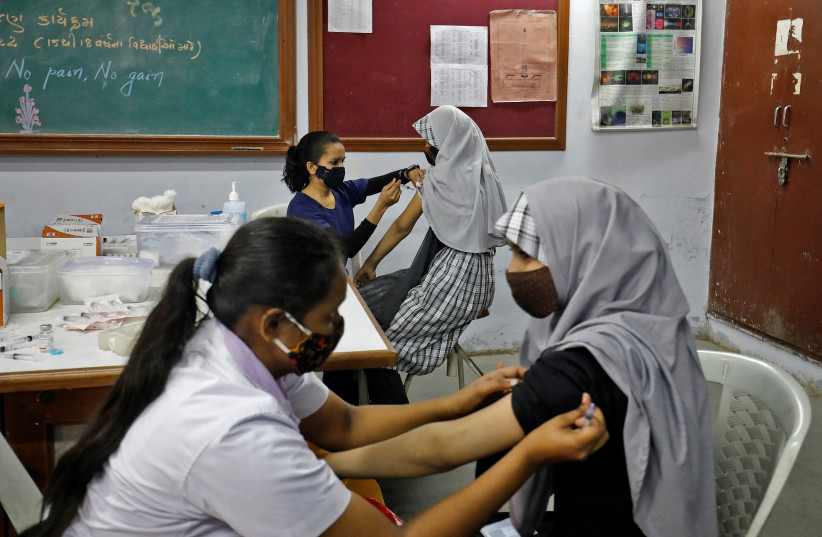Children from the Middle East may have a stronger predisposition to develop a life-threatening complication of COVID-19, a new study has found.
Conducted by scientists from the Mohammed Bin Rashid University of Medicine and Health Sciences (MBRU) and Al Jalila Children’s Hospital in the United Arab Emirates, the peer-reviewed study examines whether or not there are certain novel genetic factors that can contribute to the development of multisystem inflammatory syndrome in children (MIS-C), a rare but life-threatening complication of COVID-19 that can develop in children.
What is MIS-C?
MIS-C is a rare condition that is characterized by intense inflammation that can affect multiple organs including the heart, lungs, kidney, brains, skin, eyes, and gastrointestinal organs. While it is treatable, it can quickly become deadly if not diagnosed and treated promptly. Symptoms of MIS-C can include a continuous fever, alongside stomach pain, bloodshot eyes, dizziness, a skin rash, and vomiting and diarrhea.
It is not entirely known what causes the disease, but it has been noted that many children diagnosed with it have previously tested positive for COVID-19.

The study
In order to carry out the study, the researchers chose 70 children of Arab and Asian origin and between the age of 0-18. 45 of the study participants had been diagnosed with MIS-C and the other 25 were healthy children, who were included in the study as a control group. The children in the control group had all previously had a confirmed COVID-19 infection status.
The country of origin of all the participants was determined through hospital medical records, and all participants were from Arab countries. Study variables included demographic information, signs and symptoms on admission, inflammatory markers with cytokine profile, cardiac manifestation, course of illness, admission to the pediatric intensive care unit (PICU), treatment, and outcome.
The researchers carried out whole-exome sequencing in the genetic laboratory at Al Jalila Children's Hospital in Dubai, and DNA was extracted from peripheral blood cells using standard DNA extraction protocols.
Explaining the importance of the study, the researchers stated that "patients of [Middle Eastern] backgrounds have long been underrepresented in genetic studies, emphasizing the importance of our study in characterizing the genetic landscape of MIS-C disease in this cohort."
The results of the study showed that there was an association between genetic findings, disease onset and resistance to treatment, with "significant enrichment of rare, likely deleterious variants," accounting for the increased predisposition for MIS-C.
“The results of this research suggest that rare genetic factors play a role in MIS-C disease and highlight immune-related pathways which might become targets for intervention,” said Ahmad Abou Tayoun, Director of Al Jalila Children’s Genomics Center and Associate Professor of Genetics at MBRU.
“The results of this research suggest that rare genetic factors play a role in MIS-C disease and highlight immune-related pathways which might become targets for intervention.”
Ahmad Abou Tayoun, Director of Al Jalila Children’s Genomics Center and Associate Professor of Genetics at MBRU
“Hopefully, this will now prompt additional studies to functionally characterize some of the identified genes, and to expand genomic sequencing to more diverse populations to fully characterize the genetic landscape of this new disease entity” Dr. Abou Tayoun added.
